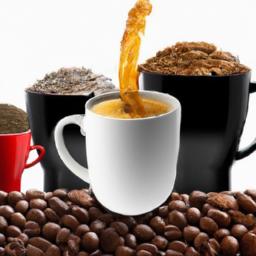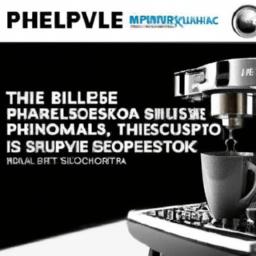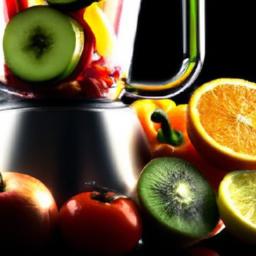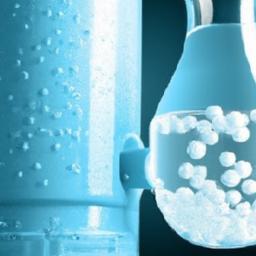Cold Press Juicer vs. Vitamix: Picking the Perfect Kitchen Companion
Choosing between a cold press juicer and a Vitamix blender often feels like stepping into a culinary battle. Both promise vibrant, nutrient-packed drinks, but their approaches and outcomes differ significantly. So which appliance truly fits your lifestyle and wellness goals? That depends on your preferences-are you craving silky, fiber-free juices or rich, creamy smoothies? Are you after swift preparation or maximum nutrient retention? After years of exploring kitchen tools at How To Cook Gourmet, we invite you to dive into the distinctive qualities of each machine and discover your ideal match.
Distinct Processing Styles: How Cold Press Juicers and Vitamix Blenders Work
While both gadgets tackle fresh fruits and vegetables, they operate in fundamentally different ways, resulting in varied textures and nutrient profiles.
Cold press juicers, also known as masticating juicers, slowly crush and press produce to extract juice. This gentle process limits heat and oxidation, preserving delicate vitamins and enzymes. The extracted liquid is typically free of pulp, resulting in a clear, smooth juice. However, the fibrous material is separated, which might be a plus or minus depending on your digestion preferences.
Conversely, Vitamix blenders motor at high speeds to pulverize whole fruits and vegetables, including skins, seeds, and fiber, creating a thick, creamy smoothie. This means you consume all the pulp and fiber, offering enhanced satiety and digestive benefits that come from fiber-rich foods.
| Cold Press Juicer | Vitamix Blender |
|---|---|
| Extracts juice only, leaving pulp behind | Blends entire fruit and vegetable |
| Preserves more heat-sensitive vitamins | Keeps fiber intact for fullness |
| Operates quietly due to slow crushing | Produces noticeable noise at high speed |
| Crafts smooth, clear juices ideal for hydration | Creates thick smoothies, soups, and sauces |
Considering cleanup? Juicers often have multiple components that require careful rinsing, while Vitamix typically has fewer parts but demands attention due to the sticky, dense blends. Which cleanup style suits your schedule better?
Texture and Taste: What Your Drink Feels Like
Texture and mouthfeel differ dramatically between these two machines, influencing your drinking experience.
The cold press juicer’s slow pressing yields a smooth, light juice with less foam and oxidation, often favored by those seeking a refreshing, nutrient-dense shot. Meanwhile, the Vitamix’s high-speed blades deliver a fibrous, full-bodied smoothie with a creamy texture-think of it as sipping a whole fruit or vegetable in one go.
| Feature | Cold Press Juice | Vitamix Smoothie |
|---|---|---|
| Texture | Light, clear, smooth | Thick, creamy, fibrous |
| Nutrient Availability | High vitamin retention, less fiber | Moderate vitamin retention, full fiber |
| Oxidation | Minimal (longer freshness) | Higher (more bubbles and foam) |
| Usage | Juices only | Smoothies, soups, nut butters |
- Cold press juice: Ideal for those looking for nutrient-concentrated, easy-to-digest drinks.
- Vitamix: Perfect for individuals wanting hearty, filling beverages rich in fiber.
Nutritional Impact: Which Retains More of What Matters?
The debate around nutrition centers on how each machine preserves vitamins, minerals, enzymes, and fiber.
Cold press juicers excel in safeguarding delicate vitamins like vitamin C and certain enzymes through their low-heat, low-oxidation extraction. Studies indicate that cold pressing can retain up to 20% more vitamin C compared to traditional centrifugal juicing methods. In contrast, the Vitamix operates at high speeds that generate some heat and exposure to air, which might degrade certain nutrients slightly but preserves dietary fiber completely.
| Nutrition Component | Cold Press Juicer | Vitamix Blender |
|---|---|---|
| Vitamin retention | High due to gentle processing | Medium; some heat degradation possible |
| Fiber content | Low; pulp removed | High; full fiber intact |
| Enzymes | Well preserved | Partially broken down by blending |
| Oxidation rate | Slow; juice lasts longer | Faster; shorter shelf life |
Which nutrient profile aligns with your health aimed: a vitamin-forward, clean juice or a fiber-rich whole-food beverage? Both promote wellness but cater to differing dietary needs.
Efficiency and Maintenance: Speed vs. Simplicity
Time is often of the essence, so let’s examine how each machine handles speed and ease of cleaning.
The Vitamix impresses with lightning-fast blends-most smoothies are ready within 30 to 60 seconds. However, the cleanup usually involves rinsing the container immediately after use, sometimes with a bit of scrubbing.
Cold press juicers require longer extraction times-usually several minutes per batch-but many modern models are designed with user-friendly, dishwasher-safe components, making cleanup straightforward despite the multiple parts.
| Aspect | Vitamix Blender | Cold Press Juicer |
|---|---|---|
| Preparation Speed | Fast (under 1 minute) | Slower (several minutes) |
| Cleanup Time | Quick rinse, moderate effort | More parts but easy wash |
| Noise Level | Loud due to high-speed blades | Quiet or gentle hum |
Are you rushing out the door or savoring a relaxed kitchen ritual? Your chosen device can either streamline your morning or enrich your culinary experience.
Beyond Juicing and Blending: Unlocking Additional Kitchen Functions
Both machines offer more than their basic tasks-expanding your culinary horizons.
Cold press juicers can excel at crafting fresh nut milks (like almond or macadamia), raw fruit sorbets, and even baby food purees, depending on the model’s capabilities. They preserve flavors delicately by operating at low speeds.
Meanwhile, the Vitamix is a multifunctional marvel: it can heat soups through friction, create silky nut butters, grind grains, whip cream, and crush ice effortlessly. This versatility often makes it a favorite among home chefs wanting a single device with many uses.
| Function | Cold Press Juicer | Vitamix Blender |
|---|---|---|
| Fresh Juices | Optimal quality & nutrient retention | Possible but less smooth |
| Nut Milks | Silky, high-quality | Good but can be gritty |
| Soups | Not designed for heating or blending | Heats while blending |
| Nut Butters | Limited functionality | Excellent texture and consistency |
| Ice Crushing | Not recommended | Highly efficient |
Which features excite you more? A focused juicing expert or a versatile kitchen powerhouse?
Sound Check: Noise Levels in Your Kitchen Environment
Noise can influence your choice, especially for early risers or night owls.
Cold press juicers are renowned for their quiet operation, suitable for households valuing peace during food prep. Vitamix blenders, by virtue of their powerful motors, emit a strong buzzing that may disrupt early mornings or shared living spaces.
| Appliance | Noise Level | Primary Cause |
|---|---|---|
| Cold Press Juicer | Low to moderate (soft hum) | Slow, grinding mastication |
| Vitamix Blender | High (loud whir) | High-speed blade rotation |
- Consideration for Households: Families with light sleepers or small children might favor quieter machines.
- Kitchen Layout: Open floor plans can amplify noise more than closed kitchens.
- Usage Timing: Early morning drinks often benefit from lower noise levels.
Budget Breakdown: Balancing Cost and Value
Affordability is key when deciding your juicing or blending companion. Both appliances range in price but offer different value propositions.
Cold press juicers generally start around $200 and can climb over $600, reflecting their sophisticated mechanisms and careful nutrient preservation. Vitamix blenders typically range between $300 and $700 but provide extensive versatility, possibly replacing several kitchen tools.
| Aspect | Cold Press Juicer | Vitamix Blender |
|---|---|---|
| Price Range | $200 – $600+ | $300 – $700+ |
| Additional Accessories | Filters, cleaning kits (may add to cost) | Usually none |
| Durability | Moderate; requires maintenance | Robust; built for heavy use |
| Functionality | Primarily juicing | Juicing, blending, heating, grinding |
Think strategically: Does your priority lie in nutrient-specific juice or broad kitchen functionality? Also consider ongoing costs like filter replacements or electricity use.
- Cold press juicer: Additional filters and parts may need replacing every 6-12 months.
- Vitamix: Higher electricity use due to motor power but usually reliable long-term.
- Warranty: Both typically offer 5-10 years; extended plans might be worthwhile investments.
Verdict: Match Your Needs with the Right Machine
It’s not about crowning a single winner but understanding which device complements your culinary lifestyle best.
If your passion lies in savoring crisp, fresh, nutrient-dense juices with minimal prep noise, the cold press juicer stands out. It maintains vitamin integrity by exerting gentle pressure without heat.
Alternatively, the Vitamix dazzles as an all-in-one powerhouse-ideal for multi-textured smoothies, soups that you can prepare hot from start to finish, and homemade spreads. Its speed and robustness make it a busy kitchen essential, despite a louder operating tone.
| Feature | Cold Press Juicer | Vitamix Blender |
|---|---|---|
| Juice Quality | High nutrient retention; smooth, pulp-free | Good, includes fiber; can generate heat |
| Primary Use | Juicing fruits and vegetables | Blending, pureeing, heating soups, grinding |
| Processing Speed | Slower; several minutes per batch | Very fast; under a minute |
| Cleaning Complexity | Multi-part disassembly | Easy, one container to rinse |
| Noise | Quiet operation | Loud, buzzing motor |
| Cost | Tends to be pricier upfront | Versatile with varying price |
Ask yourself-do you prefer the pure, clean flavor of pressed juice, or the robust, filling experience of blended drinks? Your answer will point to your kitchen champion.
Frequently Asked Questions: Cold Press Juicer vs Vitamix
Q: What distinguishes a cold press juicer from a Vitamix blender?
A: Cold press juicers slowly extract juice by crushing and pressing, removing pulp. Vitamix blenders quickly blend whole fruits and vegetables, including fiber, creating thick smoothies.
Q: Which appliance delivers better nutrition?
A: Cold press juicers preserve heat-sensitive vitamins and enzymes better due to gentle processing, while Vitamix retains all fiber but may lose some vitamins from heat.
Q: How challenging is cleanup for each?
A: Cold press juicers have several parts requiring thorough cleaning. Vitamix generally only requires rinsing the container and blades.
Q: What recipes suit each the best?
| Appliance | Ideal For | Less Suitable For |
|---|---|---|
| Cold Press Juicer | Clear juices, leafy greens, wheatgrass | Soups, thick smoothies |
| Vitamix Blender | Smoothies, hot soups, nut butters | Clear juice without pulp |
Q: Is noise a major factor?
A: Yes. Cold press juicers are quiet to moderate noise; Vitamix blenders are loud due to high-speed blades.
Q: Can both handle leafy greens?
A: Yes, but cold press juicers extract juice better from leafy greens, while Vitamix blends them into smoothies.
Q: Which is better for everyday use?
A: Cold press juicers suit those valuing fresh juice without fuss; Vitamix fits people wanting fast, versatile food prep.
Q: What about space and storage?
A: Cold press juicers typically take up more counter space due to extra parts, while Vitamix is more compact with fewer components.
Q: Can I make nut milks or nut butters?
A: Vitamix is highly effective for both; cold press juicers can make nut milks but are not ideal for nut butters.
Conclusion: Embrace Your Preferred Path to Wellness
Ultimately, both cold press juicers and Vitamix blenders empower your health in unique ways. The cold press juicer offers silky, nutrient-packed juices with minimal pulp and noise. The Vitamix shines as a high-powered, multifunctional machine delivering fiber-rich smoothies, soups, and more.
Reflect on your taste preferences, lifestyle speed, cleanup tolerance, and budget. Whether you choose the precision of the cold press or the versatility of the Vitamix, both bring freshness and vitality to your kitchen.
Still undecided? Consider which ritual you want to nurture every morning-the slow, reverent press of pure juice or the quick whirl of a robust, fibrous blend.
At How To Cook Gourmet, we celebrate every healthy sip and spoonful you create. So, are you Team Cold Press or Team Vitamix?





